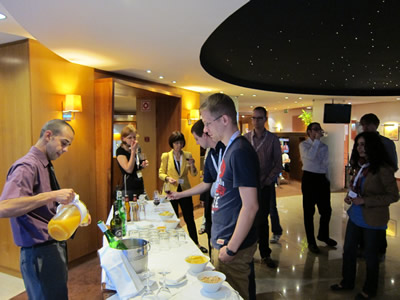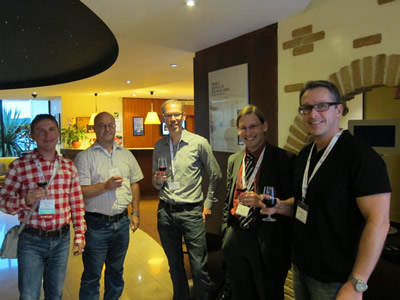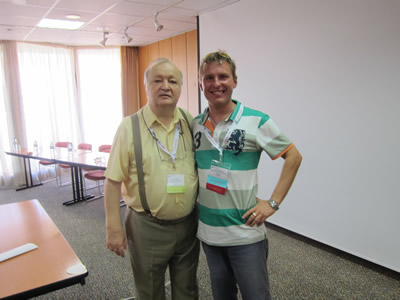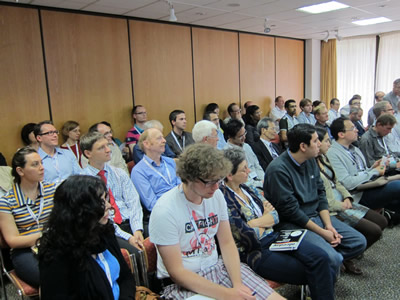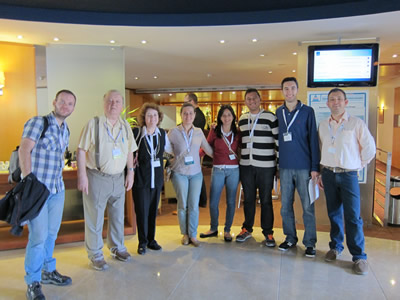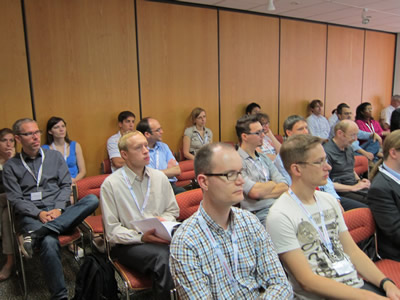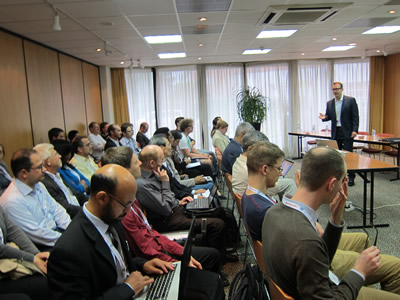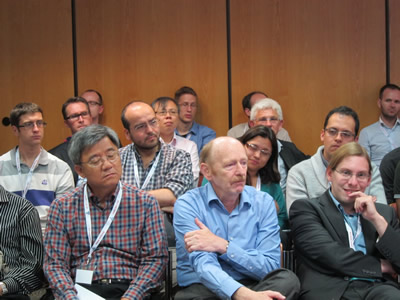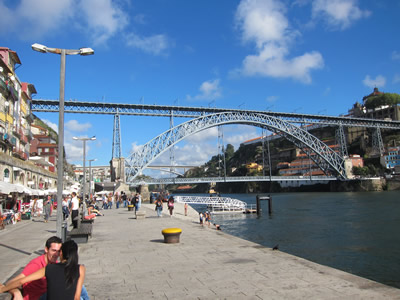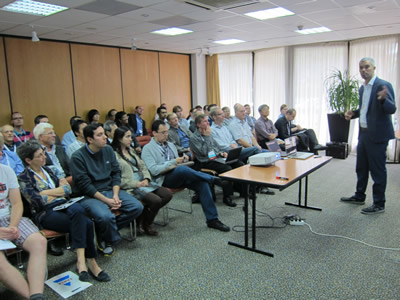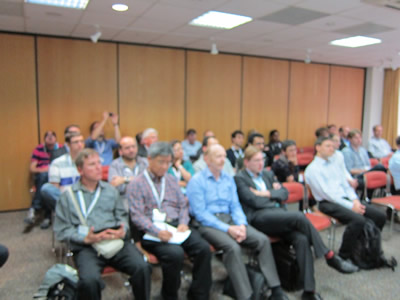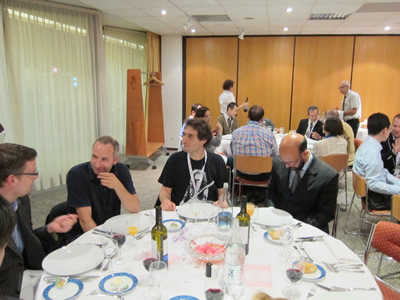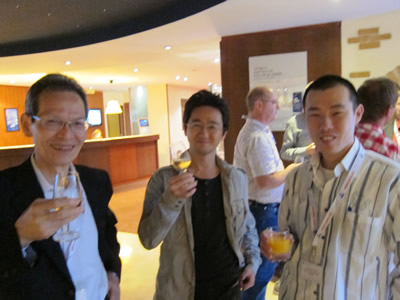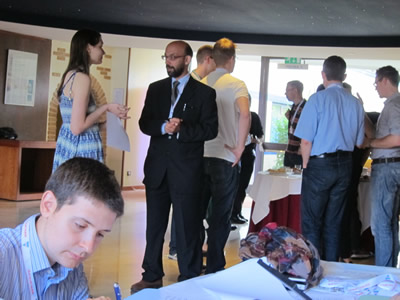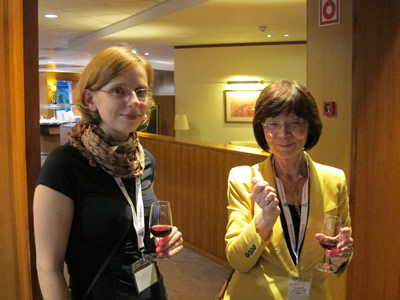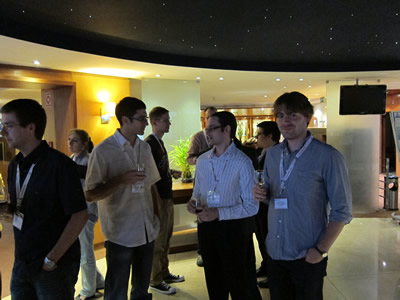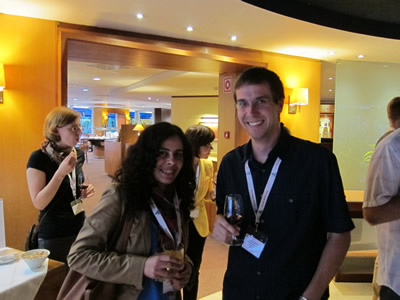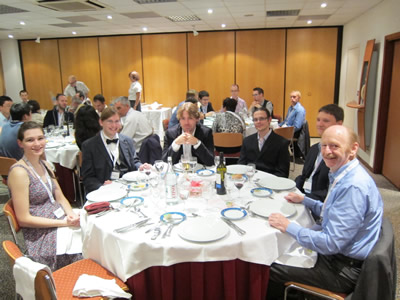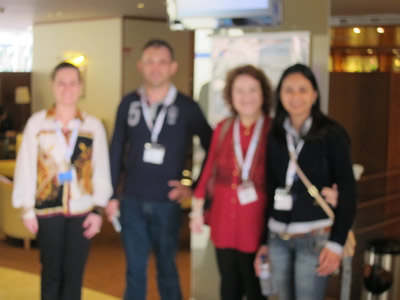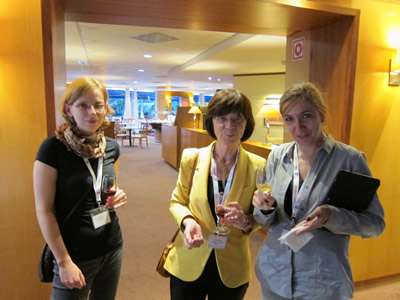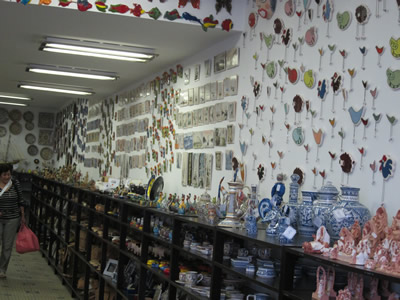IoTAI 2024 - The First International Conference on IoT-AI
June 30, 2024 - July 04, 2024
IoTAI 2024: Call for Papers
Onsite and Online Options: In order to accommodate a large number of situations, we are offering the option for either physical presence or virtual participation (pdf slides or pre-recorded videos).
Joining Artificial Intelligence (AI) and Internet of Thinks (IoT) is a technical convenience of complementary capabilities. IoT deals with devices interacting using the Internet, while AI makes the devices learn from their data and experience. Almost all domains are greatly benefiting from the marriage IoT-AI for processing high volumes of real-time data. The myriad of IoTs deserves a careful data selection, data patterns identification, controlled frequency for data gathering, high data quality, and appropriate filtering mechanisms.
In essence, by using AI principles and AI-based tools, IoT networks and devices can learn from past decisions, predict future activity, and continuously improve performance and decision-making capabilities. The successful combination of AI and IoT leverages the quality of real data to benefit system customers.
The event is focusing on blending AI and IoT (Applied intelligence) to various domains.
We solicit both academic, research, and industrial contributions. We welcome technical papers presenting research and practical results, position papers addressing the pros and cons of specific proposals, such as those being discussed in the standard fora or in industry consortia, survey papers addressing the key problems and solutions on any of the above topics short papers on work in progress, and panel proposals.
Industrial presentations are not subject to the format and content constraints of regular submissions. We expect short and long presentations that express industrial position and status.
Tutorials on specific related topics and panels on challenging areas are encouraged.
The topics suggested by the conference can be discussed in term of concepts, state of the art, research, standards, implementations, running experiments, applications, and industrial case studies. Authors are invited to submit complete unpublished papers, which are not under review in any other conference or journal in the following, but not limited to, topic areas.
All topics and submission formats are open to both research and industry contributions.
IoTAI 2024 conference tracks:
IoT systems
IoT-based hardware and software infrastructures for emergency handling
IoT-based collaborative working
IoT-based emergency situational awareness
IoT decision support technologies
IoT-based microservices design for emergency
IoT-related HCI for disaster preparation
IoT and social-behavioral analysis of endangered people
IoT-robotics systems for disaster handling
IoT-based modeling and simulation for crisis and disaster situations
AI-based processing IoT systems
Sensing, networking, processing, and actuation for emergency management
Humans (people, emergency managers, developers, firefighters, etc,) in IoT systems
Disaster communication infrastructures, technologies, and services
Self-adaptation and self-adaptive architectures for disaster
Quality of Software-oriented disaster management IoT systems
Big data processing for hazards
Remote sensing and cyber-physical systems
Wireless networks-based solutions for disaster management
Cognitive IoT-AI aspects
Industrial IoT and cognitive robots
Drones monitoring and controlling
Deep-learning, biomimicry, and organ-on-chip
Driverless vehicles with route discovery and path recognition
Mobility and IoT for Smart Cities services
Smart energy management using big environmental data and IoT
IoT-based agricultural and autonomous systems for field and livestock operation
AI cognitive engines for self-driving networks
AI cognitive management in systems with slicing, virtualization, SDN/NFV, virtual RAN, and Cloud-RAN
Real-world applications and field studies
Models, solutions, applications, and lessons learned
Prediction and early warning systems
Crowd and queue management systems
Emergency traffic management systems
Indoor/outdoor emergency evacuation
AI-based prediction models
Archaeology
Astronomy
Biology
Economics
Education
Marketing
Medicine and Health Care
Risk Management
Social Sciences
Deadlines:
Submission | Apr 13, 2024 |
Notification | May 06, 2024 |
Registration | May 21, 2024 |
Camera ready | May 31, 2024 |
Deadlines differ for special tracks. Please consult the conference home page for special tracks Call for Papers (if any).
INSTRUCTION FOR THE AUTHORS
Authors of selected papers will be invited to submit extended versions to one of the IARIA Journals.
Publisher: XPS (Xpert Publishing Services)
Archived: ThinkMindTM Digital Library (free access)
Prints available at Curran Associates, Inc.
How to submit to appropriate indexes.
Only .pdf or .doc files will be accepted for paper submission. All received submissions will be acknowledged via an automated system.
Contribution types
- regular papers [in the proceedings, digital library]
- short papers (work in progress) [in the proceedings, digital library]
- ideas: two pages [in the proceedings, digital library]
- extended abstracts: two pages [in the proceedings, digital library]
- posters: two pages [in the proceedings, digital library]
- posters: slide only [slide-deck posted on www.iaria.org]
- presentations: slide only [slide-deck posted on www.iaria.org]
- demos: two pages [posted on www.iaria.org]
FORMATS
Only .pdf or .doc files will be accepted for paper submission. All received submissions will be acknowledged via an automated system.
Final author manuscripts will be 8.5" x 11", not exceeding 6 pages; max 4 extra pages allowed at additional cost.
Helpful information for paper formatting for MS Word can be found here.
There is a community provided LaTeX template: the CTAN package iaria (with full IARIA formatting rules, including IARIA citation style, but for providing citation style it is tightly bound to pdflatex+biblatex+biber). In addition, there is also iaria-lite (not bound to pdflatex+biblatex+biber, but compatible with any TeX stack; thus, it cannot provide the IARIA citation formattings, but only the titlepage and content-related IARIA formatting rules). Based on the iaria package, there is a minimal working example as Overleaf template. When you are using the LaTeX templates, please still adhere to the additional editorial rules.
Slides-based contributions can use the corporate/university format and style.
Your paper should also comply with the additional editorial rules.
Once you receive the notification of contribution acceptance, you will be provided by the publisher an online author kit with all the steps an author needs to follow to submit the final version. The author kits URL will be included in the letter of acceptance.
We would recommend that you should not use too many extra pages, even if you can afford the extra fees. No more than 2 contributions per event are recommended, as each contribution must be separately registered and paid for. At least one author of each accepted paper must register to ensure that the paper will be included in the conference proceedings and in the digital library, or posted on the www.iaria.org (for slide-based contributions).
CONTRIBUTION TYPE
Regular Papers (up to 6-10 page article -6 pages covered the by regular registration; max 4 extra pages allowed at additional cost- ) (oral presentation)
These contributions could be academic or industrial research, survey, white, implementation-oriented, architecture-oriented, white papers, etc. They will be included in the proceedings, posted in the free-access ThinkMind digital library and sent for indexing. Please submit the contributions following the instructions for the regular submissions using the "Submit a Paper" button and selecting the appropriate contribution type. 12-14 presentation slides are suggested.
Short papers (work in progress) (up to 4 pages long) (oral presentation)
Work-in-progress contributions are welcome. These contributions represent partial achievements of longer-term projects. They could be academic or industrial research, survey, white, implementation-oriented, architecture-oriented, white papers, etc. Please submit the contributions following the instructions for the regular submissions using the "Submit a Paper" button and selecting the contribution type as work in progress. Contributors must follow the conference deadlines, describing early research and novel skeleton ideas in the areas of the conference topics. The work will be published in the conference proceedings, posted in the free-access ThinkMind digital library and sent for indexing. For more details, see the Work in Progress explanation page. 12-14 presentation slides are suggested.
Ideas contributions (2 pages long) (oral presentation)
This category is dedicated to new ideas in their very early stage. Idea contributions are expression of yet to be developed approaches, with pros/cons, not yet consolidated. Ideas contributions are intended for a debate and audience feedback. Please submit the contributions following the instructions for the regular submissions using the "Submit a Paper" button and selecting the contribution type as Idea. Contributors must follow the conference deadlines, describing early research and novel skeleton ideas in the areas of the conference topics. The work will be published in the conference proceedings, posted in the free-access ThinkMind digital library and sent for indexing. For more details, see the Ideas explanation page. 12-14 presentation slides are suggested.
Extended abstracts (2 pages long) (oral presentation)
Extended abstracts summarize a long potential publication with noticeable results. It is intended for sharing yet to be written, or further on intended for a journal publication. Please submit the contributions following the instructions for the regular submissions using the "Submit a Paper" button and selecting the contribution type as Extended abstract. Contributors must follow the conference deadlines, describing early research and novel skeleton ideas in the areas of the conference topics. The work will be published in the conference proceedings, posted in the free-access ThinkMind digital library and sent for indexing. 12-14 presentation slides are suggested.
Posters (paper-based, two pages long) (oral presentation)
Posters are intended for ongoing research projects, concrete realizations, or industrial applications/projects presentations. The poster may be presented during sessions reserved for posters, or mixed with presentation of articles of similar topic. A two-page paper summarizes a presentation intended to be a POSTER. This allows an author to summarize a series of results and expose them via a big number of figures, graphics and tables. Please submit the contributions following the instructions for the regular submissions using the "Submit a Paper" button and selecting the contribution type as Poster Two Pages. Contributors must follow the conference deadlines, describing early research and novel skeleton ideas in the areas of the conference topics. The work will be published in the conference proceedings, posted in the free-access ThinkMind digital library and sent for indexing. 8-10 presentation slides are suggested. Also a big Poster is suitable, used for live discussions with the attendees, in addition to the oral presentation.
Posters (slide-based, only) (oral presentation)
Posters are intended for ongoing research projects, concrete realizations, or industrial applications/projects presentations. The poster may be presented during sessions reserved for posters, or mixed with presentation of articles of similar topic. The slides must have comprehensive comments. This type of contribution only requires a 8-10 slide-deck. Please submit the contributions following the instructions for the regular submissions using the "Submit a Paper" button and selecting the contribution type as Poster (slide-only). The slide-deck will be posted, post-event, on www.iaria.org.
8-10 presentation slides are suggested. Also a big Poster is suitable, used for live discussions with the attendees, additionally to the oral presentation.
Presentations (slide-based, only) (oral presentation)
These contributions represent technical marketing/industrial/business/positioning presentations. This type of contribution only requires a 12-14 slide-deck. Please submit the contributions following the submission instructions by using the "Submit a Paper" button and selecting the contribution type as Presentation (slide-only). The slide-deck will be posted, post-event, on www.iaria.org.
12-14 presentation slides are suggested.
Demos (two pages) [posted on www.iaria.org]
Demos represent special contributions where a tool, an implementation of an application, or a freshly implemented system is presented in its alfa/beta version. It might also be intended for thsoe new application to gather the attendee opinion. A two-page summary for a demo is intended to be. It would be scheduled in special time spots, to ensure a maximum attendance from the participants. Please submit the contributions following the submission instructions by using the "Submit a Paper" button and selecting the contribution type as Demos. The Demos paper will be posted, post-event, on www.iaria.org.
Tutorial proposals
Tutorials provide overviews of current high interest topics. Proposals should be for 2-3 hour long. Proposals must contain the title, the summary of the content, and the biography of the presenter(s). The tutorial slide decks will be posted on the IARIA site.
Please send your proposals to tutorial proposal
Panel proposals
The organizers encourage scientists and industry leaders to organize dedicated panels dealing with controversial and challenging topics and paradigms. Panel moderators are asked to identify their guests and manage that their appropriate talk supports timely reach our deadlines. Moderators must specifically submit an official proposal, indicating their background, panelist names, their affiliation, the topic of the panel, as well as short biographies. The panel slide deck will be posted on the IARIA site.
Please send your proposals to panel proposal
